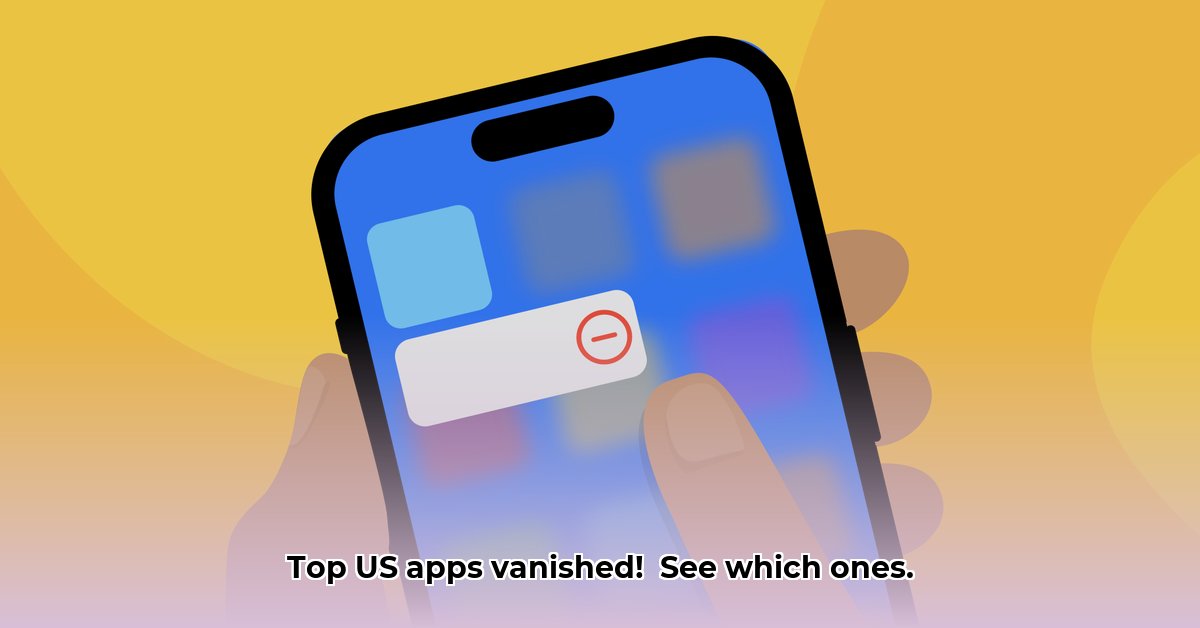
Most Deleted Apps in the United States: 2024's App Uninstall Surge
The landscape of mobile applications in the United States is undergoing a significant transformation. Millions of users are deleting apps in 2024, leading to a dramatic shift in app usage and raising important questions about user behavior, app development, and data privacy. This surge in uninstallations is not attributable to a single factor but rather a confluence of interconnected issues.
The Great App Purge: Why Are We Saying Goodbye?
This year's mass exodus of app users, particularly from social media and messaging platforms, presents a compelling case study in evolving user expectations. The reasons are multifaceted, ranging from concerns about data security to the emergence of innovative competitors and changing generational preferences.
Privacy Panic: Is My Data Safe?
Data privacy has moved from the periphery to the forefront of user concerns. Established giants like Facebook—burdened by past data breaches—face heightened scrutiny, alongside newer platforms questioned about their security practices. The issue transcends regulatory compliance; it's fundamentally about user trust. Are users comfortable sharing their personal information with these companies? This uncertainty significantly contributes to app deletions.
The Underdog's Rise: New Kids on the Block
The meteoric rise of apps like TikTok, with its innovative short-form video format, has disrupted the market, forcing established players like Instagram to adapt and compete. This exemplifies the dynamic nature of the app ecosystem, where established dominance is never guaranteed. New apps with unique features and user experiences frequently attract users away from more traditional choices.
Generational Divide: Who's Leaving and Why?
Younger demographics are particularly prone to deleting established apps like Facebook, perceiving them as outdated and lacking the engagement of newer platforms. This shift reflects evolving preferences and expectations regarding social media interaction and online experiences. It’s a generational preference, not solely a matter of technological literacy.
The Future of Apps: What's Next?
The app ecosystem's rapid evolution demands adaptability from developers. Addressing user privacy concerns, continuously innovating features to maintain engagement, and cultivating user trust are paramount for long-term success. Furthermore, increased regulatory oversight and greater transparency regarding data usage are likely to become the norm.
Key Takeaways:
- User privacy concerns are a major driver of app deletions.
- Competition from innovative new apps is reshaping the market.
- Generational shifts in preferences further contribute to uninstall rates.
How to Mitigate Social Media App Uninstallations Due to Privacy Concerns
The rising tide of app deletions, fueled by privacy concerns, presents a significant challenge for social media companies. While precise quantitative data on this specific issue remains limited, user feedback and anecdotal evidence strongly suggest a substantial correlation.
Strategies for App Retention:
For Social Media Users:
- Proactively manage privacy settings: Regularly review and adjust settings to limit the amount of personal data shared.
- Utilize security tools: Employ two-factor authentication and other security measures to enhance online safety.
- Stay informed: Keep abreast of evolving privacy regulations and best practices.
For Social Media Platforms:
- Simplify privacy settings: Make privacy controls intuitive and easily understandable.
- Improve default settings: Prioritize user privacy by implementing stronger default settings.
- Transparency is Key: Clearly communicate data collection and usage practices.
- Invest in User Education: Offer resources and tutorials to help users understand and manage their privacy.
Addressing privacy concerns isn't just prudent; it's crucial for building trust and retaining users in the long term. A proactive, user-centric approach is essential for navigating this evolving digital landscape. The future of app success hinges on prioritizing user privacy and trust.